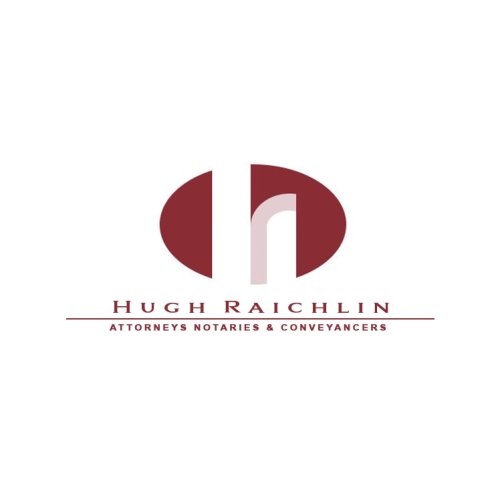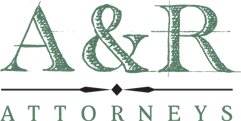Best Environmental Law & Compliance Lawyers in Johannesburg
Share your needs with us, get contacted by law firms.
Free. Takes 2 min.
List of the best lawyers in Johannesburg, South Africa
About Environment Law in Johannesburg, South Africa
Environmental law in Johannesburg, South Africa, is a complex and dynamic field focused on protecting the natural environment while balancing the needs of a growing urban population. Johannesburg, being the largest city in South Africa, faces many environmental challenges, such as air and water pollution, waste management, and biodiversity conservation. The legal framework aims to address these issues by enforcing regulations that govern land use, natural resource management, and pollution control. The key legislation includes the National Environmental Management Act (NEMA), which lays the foundation for sustainable environmental practices, and various sector-specific laws addressing issues like air quality, water resources, and biodiversity conservation.
Why You May Need a Lawyer
There are several scenarios where individuals, businesses, and organizations may require legal assistance in environmental matters. These include disputes over land use and development, compliance with environmental regulations, litigation related to environmental harm or pollution, and negotiations for permits or licenses. Companies may also need legal advice when conducting environmental impact assessments or dealing with penalties for non-compliance with environmental laws. A lawyer can help navigate these complex legal issues, ensure compliance with regulatory requirements, and represent clients in court or negotiations.
Local Laws Overview
Key aspects of local environmental laws in Johannesburg focus on sustainable development and environmental protection. The National Environmental Management Act (NEMA) provides the overarching principles for environmental governance. Other important pieces of legislation include the Air Quality Act, which regulates emissions and air pollution; the Water Act, which aims to manage water resources sustainably; and the Biodiversity Act, which focuses on protecting ecosystems and species. Municipal bylaws also play a crucial role in addressing local environmental issues such as waste management, noise pollution, and public health matters related to environmental conditions.
Frequently Asked Questions
What is the main legislation governing environmental law in Johannesburg?
The primary legislation is the National Environmental Management Act (NEMA), which sets out the principles for environmental decision-making and management.
When do I need an Environmental Impact Assessment (EIA)?
EIAs are required for activities that may have significant environmental impacts, such as large-scale construction projects, mining operations, and industrial developments.
What are the penalties for non-compliance with environmental laws?
Penalties can range from fines and sanctions to imprisonment, depending on the severity and nature of the non-compliance.
How can I file an environmental complaint?
Complaints can be lodged with the relevant government department, such as the Department of Environmental Affairs or the Environmental Management Inspectorate, which investigates and enforces environmental compliance.
Is Johannesburg doing enough to address air pollution?
Johannesburg has implemented measures to improve air quality, but challenges remain due to factors like industrial emissions, vehicle pollution, and urbanization.
Are there restrictions on water usage in Johannesburg?
Water usage is regulated, especially during times of drought or water shortages. Restrictions may include limits on watering gardens, washing cars, and filling swimming pools.
What role do local communities play in environmental governance?
Communities are encouraged to participate in environmental decision-making processes. Public consultations and hearings are often held to gather input and ensure community concerns are considered.
How is waste management regulated?
Waste management is regulated through municipal bylaws that mandate waste separation, recycling, and proper disposal methods to minimize environmental impact.
What should I do if my business is accused of causing environmental harm?
Seek legal advice immediately to understand the implications, assess the situation, and determine the best course of action, including addressing any regulatory compliance issues.
How can I stay informed about changes in environmental legislation?
Keep up-to-date by subscribing to updates from relevant government agencies, participating in environmental forums, and consulting with environmental law experts regularly.
Additional Resources
Several organizations can provide assistance and information about environmental legal issues in Johannesburg. These include:
- The Department of Environmental Affairs
- The Gauteng Department of Agriculture and Rural Development
- The Environmental Management Inspectorate (Green Scorpions)
- Local universities and research institutions with environmental law programs
- Non-governmental organizations like the South African Environmental Observation Network (SAEON) and Wildlife and Environment Society of South Africa (WESSA)
Next Steps
If you require legal assistance in environmental matters, consider the following steps:
- Consult with an environmental lawyer or legal firm specializing in environmental law to discuss your specific situation.
- Gather all relevant documentation, such as permits, compliance records, and any correspondence with regulatory bodies, to present to your lawyer.
- Stay informed about developments in environmental law and compliance requirements in your area of concern.
- Consider participating in workshops or briefings hosted by relevant authorities or organizations to enhance your understanding of environmental laws and your rights.
Lawzana helps you find the best lawyers and law firms in Johannesburg through a curated and pre-screened list of qualified legal professionals. Our platform offers rankings and detailed profiles of attorneys and law firms, allowing you to compare based on practice areas, including Environmental Law & Compliance, experience, and client feedback.
Each profile includes a description of the firm's areas of practice, client reviews, team members and partners, year of establishment, spoken languages, office locations, contact information, social media presence, and any published articles or resources. Most firms on our platform speak English and are experienced in both local and international legal matters.
Get a quote from top-rated law firms in Johannesburg, South Africa — quickly, securely, and without unnecessary hassle.
Disclaimer:
The information provided on this page is for general informational purposes only and does not constitute legal advice. While we strive to ensure the accuracy and relevance of the content, legal information may change over time, and interpretations of the law can vary. You should always consult with a qualified legal professional for advice specific to your situation.
We disclaim all liability for actions taken or not taken based on the content of this page. If you believe any information is incorrect or outdated, please contact us, and we will review and update it where appropriate.
















